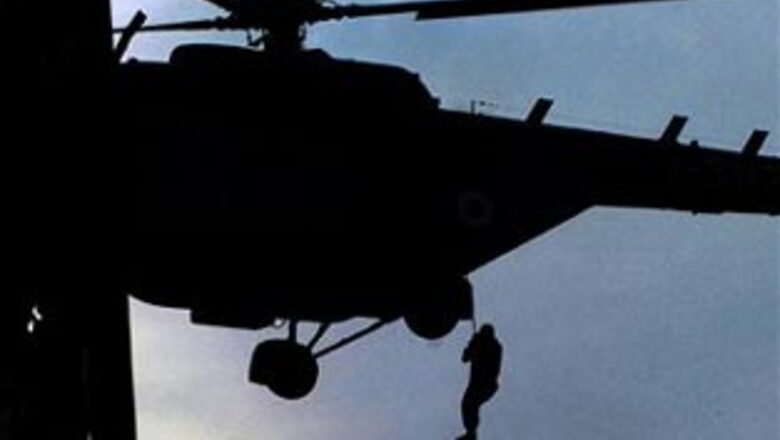
views
Washington: The deadly attacks in India may have provided a low-frills but bloody blueprint for other violent groups to follow, US anti-terrorism officials told Congress on Thursday.
The FBI's chief intelligence officer told a Senate hearing that the November siege showed that well-trained assailants with simple weaponry can cause massive casualties.
"I think we can expect that groups will look to that as a model for themselves," Donald Van Duyn said at the Senate Homeland Security and Governmental Affairs hearing. "We sometimes focus on tactics that may be exotic and esoteric ... but for most terrorists, they're looking for what works."
His counterpart at the Homeland Security Department, Charles Allen, told Senators that "the sheer brutality of this attack, I believe, is the kind of thing that can be conducted against soft targets around the world."
The attacks in Mumbai, India's financial capital, left 164 dead and nearly 300 more wounded. Lawmakers held the hearing to discuss lessons learned from the ordeal.
Van Duyn said that as much as governments worry about chemical, biological, or radiological attacks, what happened in India may encourage terrorists to launch low-tech violence. In Mumbai, 10 terrorists with handheld rifles and explosives were able to keep police at bay for nearly three days.
India says the terrorists were all Pakistani and has blamed a Pakistani-based terror group, Lashkar-e-Taiba.
Allen said he was concerned that US shopping malls develop effective evacuation plans. "This kind of attack, I think we have to be prepared for it and be prepared for soft targets to be attacked," Allen said.
Also testifying was New York City's Police Commissioner, Ray Kelly, who warned of the other simple tool used to deadly effect in Mumbai: cell phones.
PAGE_BREAK
According to phone transcripts, the attackers received instructions and real-time updates about the officers amassing against them. Some of the phones they used for the calls apparently were taken from the hostages.
That information, investigators believe, helped make the attack much more deadly as the terrorist delayed capture.
Kelly said his department is examining ways it might be able to shut down cell phone calls in and around future hostage-taking scenarios, without also shutting down the communications devices of the police trying to rescue them.
With President-elect Barack Obama's set to take the oath of office on January 20, US intelligence officials said they know of no specific threats to the upcoming inauguration. But they are concerned about the potential for a Mumbai-type attack.
"A group of well-armed terrorists, likely equipped with automatic weapons and explosives, could assault their target forcibly with the intention of taking hostages," according to a joint FBI and Homeland Security intelligence assessment on Wednesday that was obtained by The Associated Press.




















Comments
0 comment